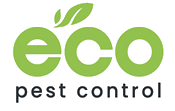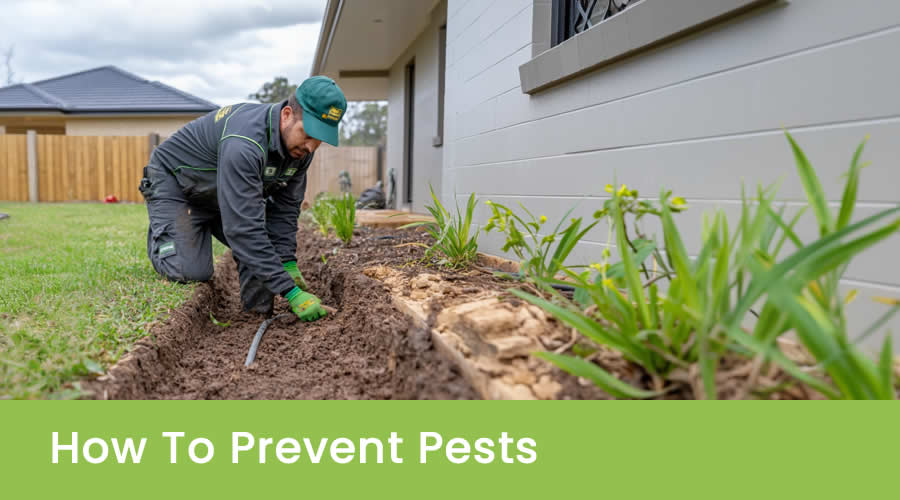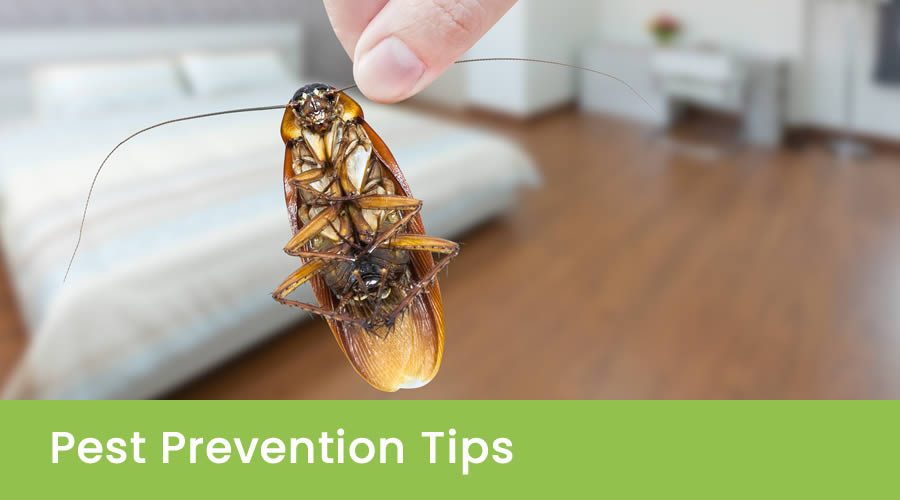How to Prevent Pests at Home
Tips For Home Pest Control
Dealing with pests at home can be frustrating. From ants in the kitchen to rats and mice in the walls, pests can cause damage and pose health risks once they’re settled. An infestation can harm your property and homes. That’s why pest prevention is key. With some simple pest-proofing and smart habits, you can keep your home pest-free.
1. Seal Entry Points
Pests often enter through small gaps, cracks, and crevices. Inspect your home and seal any openings, gaps, or holes using caulk or weatherstripping. This method of exclusion acts as a physical barrier. Focus on doors, windows, pipes, vents, and the roof. These are common entry points for them. Install screens on windows and vents to prevent insects from entering. For wider gaps, use steel wool or copper mesh to keep rodents out. By sealing entry points, you can stop pests.
2. Store Food Properly
Pests are attracted to food. Store dry goods like flour, grains, cereals, and pet food in airtight containers, and keep fruits and vegetables in the fridge. Maintain kitchen hygiene by cleaning countertops, tables, and floors regularly, and take the rubbish out often. Dispose of food scraps promptly. By eliminating food sources, you make your home less appealing to pests.
3. Dispose of Rubbish Regularly
Take out the waste frequently, and ensure bins have tight-fitting lids. Use strong bags and keep outdoor bins away from the house. Clean garbage bins occasionally to remove residue and standing water, which can attract flies and mosquitoes. Proper rubbish disposal reduces the chance of attracting pests. Stagnant water can also be a breeding ground for mosquitoes, so be sure to eliminate it.
4. Keep Your Home Clean
Pests thrive in messy, damp environments. Good sanitation is essential. Avoid clutter by organising things and keeping surfaces clear. Fix any leaks promptly, and clean up after pets. Clean furniture regularly to remove crumbs and spills that might attract pests. By maintaining cleanliness, you disrupt their habitat. Keeping your home clean and dry makes it less inviting for bugs to settle in.
5. Fix Leaks
Moisture attracts termites and cockroaches. Termites especially can damage wood structures, leading to a termite infestation. Fix leaks quickly, ensure good ventilation, and use dehumidifiers in damp areas. Regular maintenance prevents moisture buildup. By reducing moisture, you reduce the risk of pest infestations.
6. Use Traps and Repellents
Place traps with bait in areas like garages and basements to catch rodents early. Use deterrents or safe pesticides around entry points to deter insects. Regular monitoring of traps and repellents helps in early detection. Traps, repellents, and targeted treatments are helpful tools in controlling pests and preventing them.
7. Call a Professional
If pests do get in, don’t hesitate to call a professional for a pest inspection. Professional pest control businesses have the tools and experience needed for removal and can offer effective solutions, preventing small issues from becoming big problems. They can find out the extent of the pest infestation and recommend appropriate actions.
If you have any questions, contact us for more information about pest control services.
8. Choose Safe Pest Control Methods
Opt for pest control products that provide protection but are safe for people, pets, and the environment, ensuring everyone’s safety. Avoid harmful chemicals when possible. In Australia, there are many eco-friendly options available. Use natural repellents or low-risk baits where possible, and always follow label instructions. Remember, prevention is better than cure when it comes to pest management.
Conclusion
Preventing pests is easier than dealing with an infestation. Follow these simple steps and tips: seal entry points, store food properly, maintain cleanliness, and use traps as needed. With these measures, you can protect your property and keep your home bug-free. For example, regular maintenance and good hygiene can make a big difference. Make sure to stay vigilant, as household pests can appear when least expected.
Additional Information
If you’re dealing with pest problems, it’s important to address them promptly. A pest control operator is trained to handle common household pests like bed bugs, termites, and rodents. They can use pesticides safely and effectively. For food premises and food businesses, food safety is paramount, so pest management should be a priority to prevent contamination of food and food packaging.
Find out more by visiting our About Us page or reviewing our Privacy Policy. If you need assistance, please contact us.
For more resources, click here.


